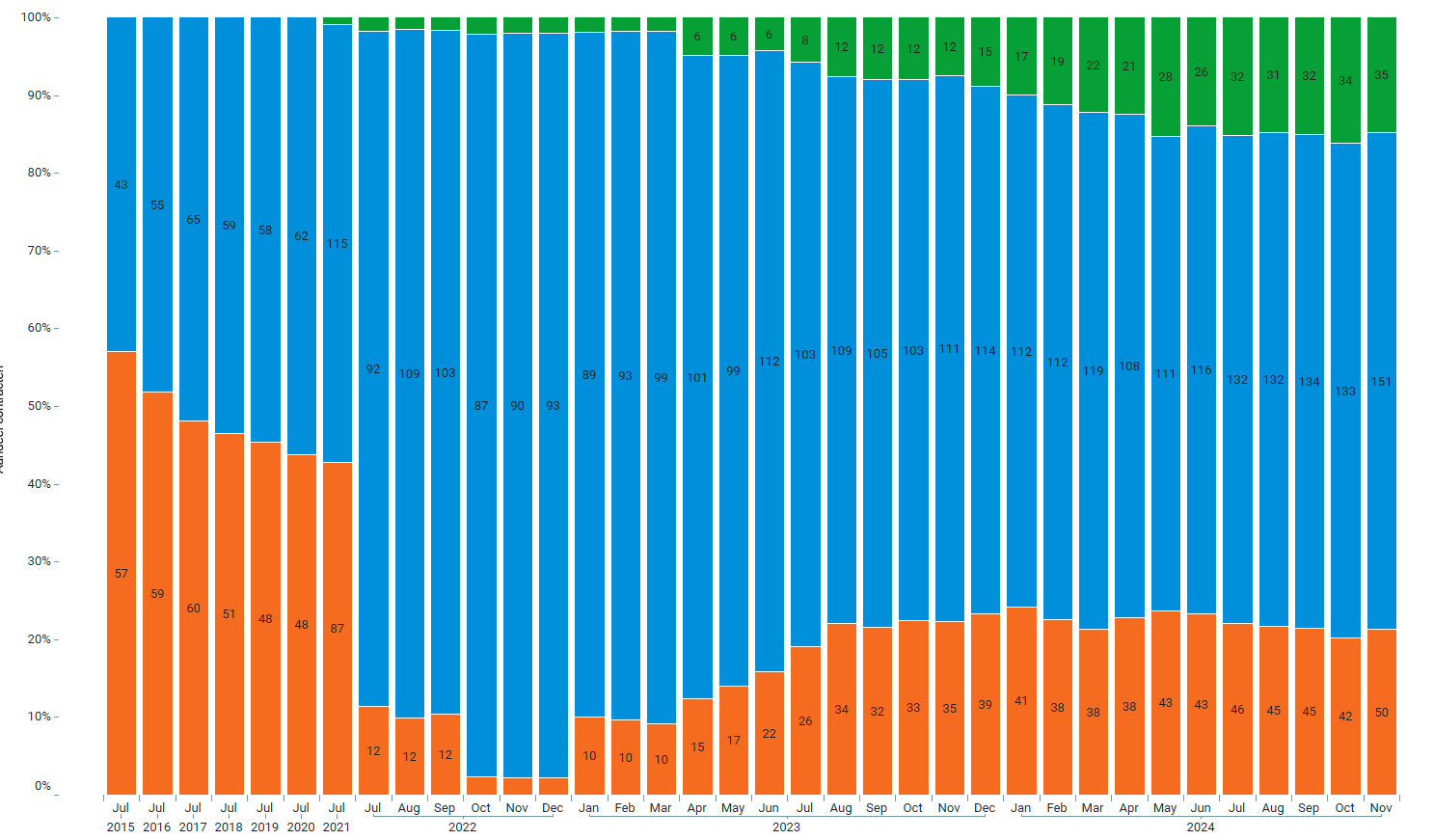Never before have households in Flanders had such a choice of energy contracts. However, this fierce competition does not necessarily benefit consumers.
Flemish households can choose from a record number of energy contract options, figures from the Flemish energy regulator VREG show. Not only are there more suppliers in the energy market, but providers are also offering a greater variety of contracts, making it difficult for consumers to decide which suits them best.
There are 417 offers for electricity and gas on the market this month. 236 are aimed at private individuals (ordinary households) and the rest (181) are for companies. In total, this is almost twice as many contract options as were available this time last year (224). Flemish households could choose from 158 energy contracts in November 2023.

The evolution in the number of energy contracts available to households (the colour green refers to dynamic contracts, orange to fixed and blue to variable contracts). Credit: VREG
When VREG first started tracking the energy contracts on offer in 2015 "just" 191 contracts were being supplied, of which 100 were available to households. This means there are almost two and a half times more contracts for individual consumers today than nine years ago.
Complex contracts
This rise can partly be explained by the growth of the energy market. More (smaller) providers have started operating in Flanders, which increases the total supply. However, the significant increase has more to do with the fragmentation of supply.
Until the end of 2020, consumers could only choose between the classic 'fixed' (a fixed price for a certain period) and 'variable' contracts (prices fluctuate). Since 2021, the 'dynamic' energy contract offer – in which the tariff paid depends on the time of day electricity is consumed – has been added.
Contracts are increasingly customisable: consumers can choose to receive green or local power, the length of their contract and how they want to receive their bills (on paper or digitally). VREG says that energy supplier Mega offers the most contracts and counts 49 different contracts available to households. This is almost twice as many as Luminus, which offers the second-most contracts (26). Engie gives households the choice between 15 contracts.
But Mega disputes the method used by VREG, arguing instead that it offers six variable and fixed contracts, and a seventh dynamic contract. A Mega spokesperson told The Brussels Times that VREG counts "one product with a selectable option" as two separate contracts. The energy provider said that by listing gas and electricity separately, VREG counts an additional six products in Mega's range, giving the impression that it has more products than it actually does.

Credit: Belga/Eric Lalmand
Missing out on the cheapest option
According to Steven Van de Walle, professor of public administration at KU Leuven, the variety of energy contracts is partly a "deliberate strategy" by energy suppliers "to make the process less transparent".
"When people have too much choice, they get overwhelmed," he told Het Laatste Nieuws. "By giving consumers too many options, they can no longer inform themselves adequately and it becomes hard to make a firm decision." This results in consumers avoiding changing suppliers, even though that may not be the most advantageous option.
This was reflected in a study by Van de Walle, which showed that when customers who were dissatisfied with their supplier were given too much choice, the number of people willing to switch suppliers dropped by 10%. In practice, the number of Flemish households switching between energy suppliers dropped in September for the first time in a decade, even though this can save up to €600 a year.
Limiting the number of contracts per supplier has been ruled out as it would contravene the free market principle. Consumer protection organisation Test Achats has called for a limit to the number of parameters in variable contracts (the duration period; the combination with injection tariffs, choosing green power).

